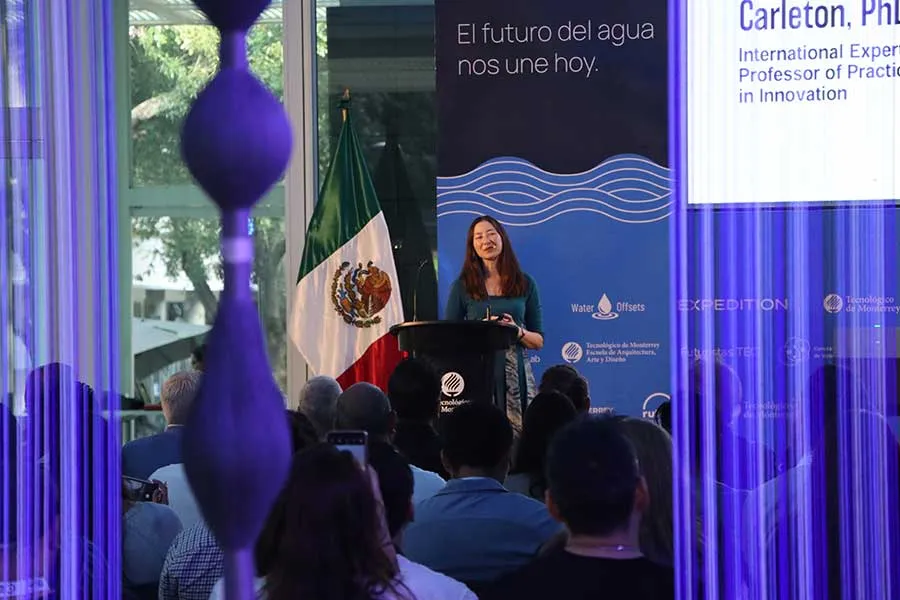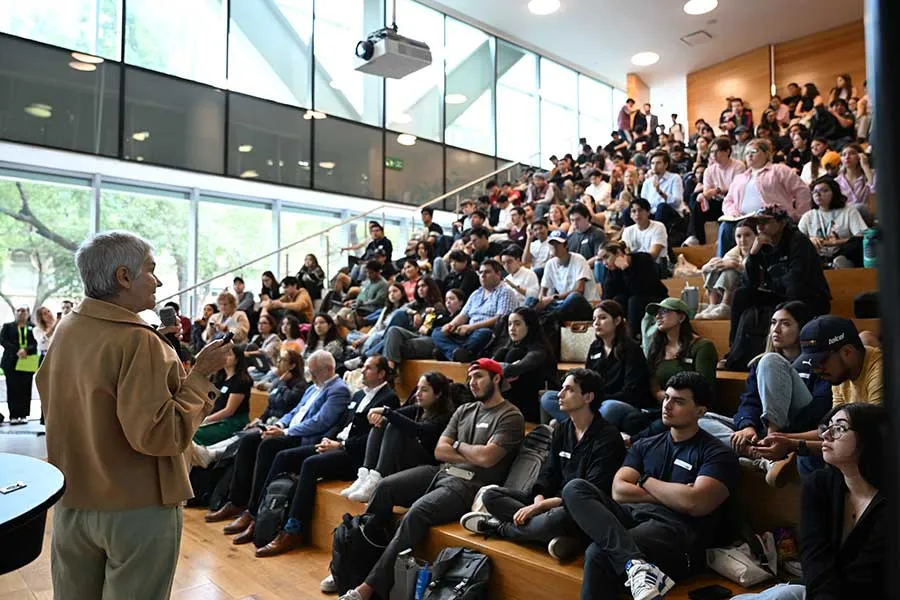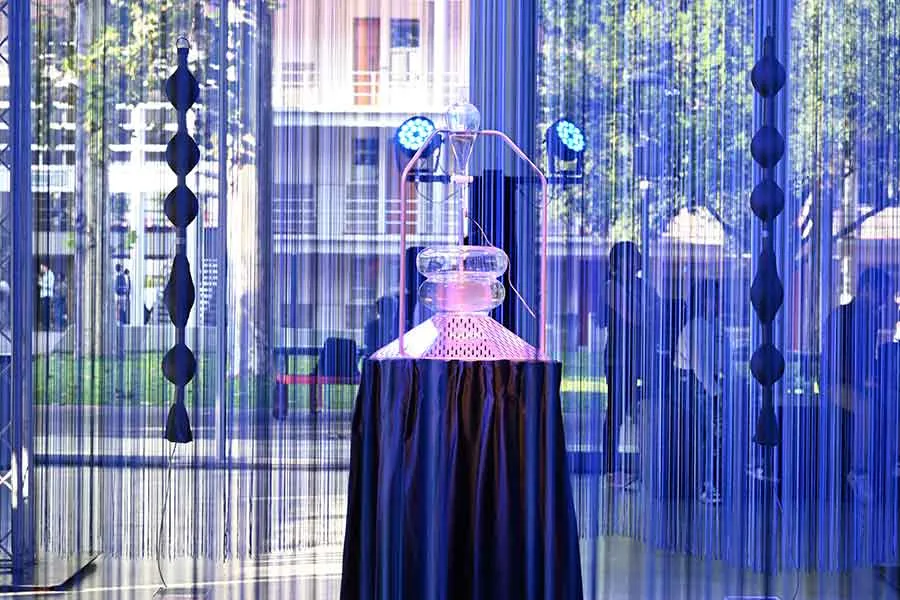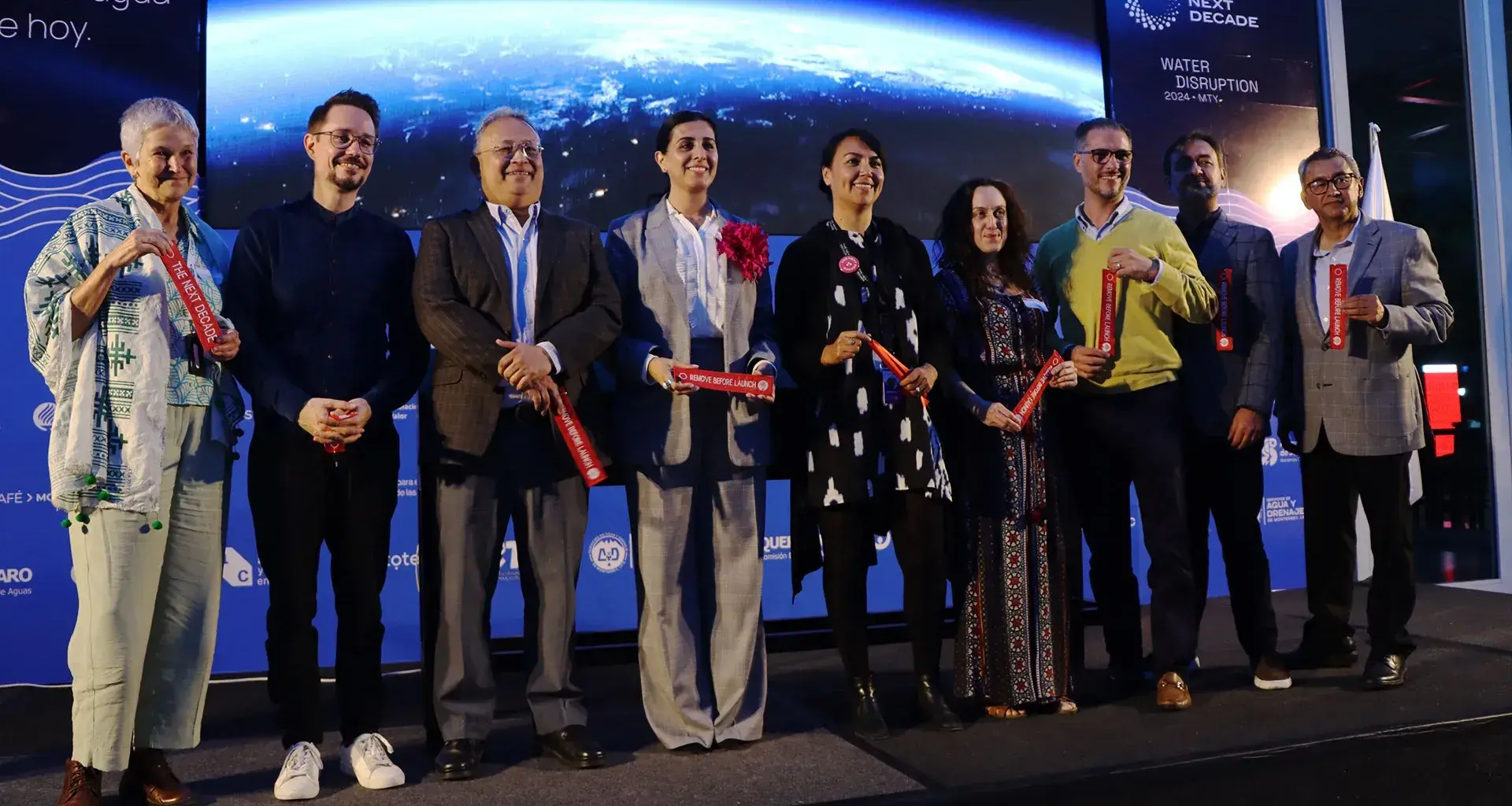Specialists at the second edition of The Next Decade: Water Disruption held at the Tec’s Monterrey campus pointed out that one of the main challenges facing the water issue is generating projects with big impact and future results.
This event is an immersive experience aimed at connecting, enabling, and attracting talent from an innovation and entrepreneurial ecosystem to solve the challenges humanity faces.
“The only way to change our environment is to set the collective in motion. This space was created to connect many people from different backgrounds around a common asset such as water,” said Inés Sáenz, Vice President of Outreach, Social Impact, and Sustainability.

Here are eight actions that specialists consider indispensable in water management and care.
1. Moonshots or the ability to create high-impact ideas
Radical innovation expert Tamara Carleton said that it is necessary to be visionary and dare to think big when seeking to implement a change in current paradigms.
“The Moonshot method allows us to develop high-impact ideas. For example, this event, The Next Decade, provides the opportunity to present projects, prototypes, and ideas that envision the future.
“We can go about generating horizons that serve as clear objectives, radical solutions, and the use of innovative technologies that conclude with the execution of our idea,” she explained.
“Each human group has its own water culture. There’s no society without a degree of this element.” – Denise Soares
2. Understanding the cyclical stress of each city
Rodrigo Pantoja, a professor at the Tec’s School of Architecture, Art, and Design, said that understanding the water needs of each region allows for the generation of specific actions and solutions.
“We need to understand that there are different types of cities, so there’ll be different solutions for each one. For example, in more industrial cities, we would have to stop using drinking water to cool machinery,” he said.

3. Merging cities with green spaces
Diana García, a professor at the School of Architecture, Art, and Design on the Querétaro campus, highlighted the importance of thinking about cities as places that merge habitable environments with green spaces without affecting natural resources.
“This model allows you to efficiently manage natural resources such as water. We need to be sensitive to be able to embrace environments, to build following the natural flow of the rivers and not over them,” she said.
4. Generating co-creation environments
Economist and social anthropologist Sebastián Jung explained Theory U, which is a collaborative process that can be applied to the process of finding water solutions.
“In order to address social issues, it’s necessary to foster core teams that act as agents of change, in addition to connecting and listening to the diverse perspectives of the system and its opportunities,” he said.
5. Creating community technologies
Denise Soares, a social anthropologist from the National Autonomous University of Mexico and environmental specialist, used the term community technology to refer to the need for collective participation in the development of water access projects.
“Technologies are a means to achieve the improvement of living conditions and quality of life, but community technologies, the involvement of the community in the use of these tools is what we need to pay attention to,” she said.
“We need to understand that there are different types of cities, so there’ll be different solutions for each one.” – Rodrigo Pantoja
6. Adopting new methods of access to water and sanitation
Motivating the community to generate a change based on their environment is fundamental, said specialist Denise Soares. Actions ranging from using dry toilets to collecting water can begin to be applied daily in homes.
“Each human group has its own water culture. There’s no society without a degree of this element. We can’t tell them to learn a new culture but to adapt new elements to what already exists,” she said.

7. Creating multidisciplinary work teams
Working with multidisciplinary teams capable of developing projects focused on water use was another proposal put forward by Diana García.
“Environmentalists, architects, and engineers should be open to this conversation. Contributing their ideas can result in projects with huge benefits such as water treatment plants, rainwater harvesting prototypes, etc.,” she explained.
8. Parking lots as environmental spaces
T
Both Diana García and Rodrigo Pantoja agreed that one of the specific actions cities can begin with to transform their environment into a more sustainable one is to transform spaces such as parking lots into environmental spaces.
“We have these gray spaces in every city, but we don’t think we can apply devices to them that capture water, filter it, treat it, and reuse it,” said Diana García.
The Next Decade: Water Disruption
The Next Decade: Water Disruption 2024 is a Tec de Monterrey initiative that seeks to reaffirm the culture of innovation in the institution’s ecosystem, and to generate valuable links to solve problems that affect humanity.
“In order to address social issues, it’s necessary to foster core teams that act as agents of change.” – Sebastián Jung.
This second edition of the event held on October 23 and 24 brought together various experts in environmental and water issues who shared projects and initiatives focused on addressing current and future water challenges
Attendees had the opportunity to participate in the workshops Vivero de Oportunidades (Opportunities Incubator), and Mastering the Habits of Anticipatory Leadership, to name but a few.
The session Thursday Gathering: “Water Disruption” was also held as part of Venture Café Demo Day Monterrey.
Don’t leave without reading:





